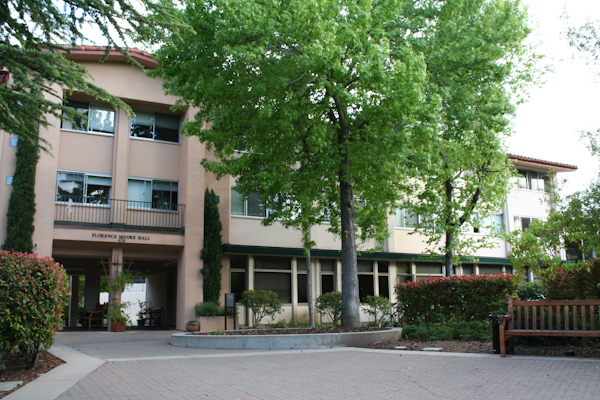Despite the University’s intent to commence 2020-21 instruction on Sept. 14 with a limited on-campus housing plan, the details of the presence and structure of several residential programs remain unknown. The decisions to cancel residence-based Sophomore College and move both the Leland Scholars Program (LSP) and New Student Orientation (NSO) to a remote programming, along with the University’s new hesitancy about bringing students back to campus, does not bode well for the future of the residence-based Structured Liberal Education (SLE) program.
SLE spans three quarters and traditionally serves around 90 frosh looking for a “liberal arts college experience.” A crucial aspect of the program is its residential nature, which has students living in the same dormitory on Stanford campus. In past years, this has been Florence Moore Hall, but associate director of SLE Jeremy Sabol can only hope that that is feasible in the upcoming year of uncertainty.
“We don’t have any definite plans yet, as the situation is still readily evolving,” Sabol said. “We just learned … that first-year students will be on the campus in the fall. So that’s brand new information for us, and we’re hesitating about making any definite plans at this point as the situation keeps changing.”
“So we could spend a lot of energy making decisions and they’d become moot,” he added.
The program also remains unsure as to whether or not any aspect of the curriculum, which centers primarily on texts and media drawn from Western tradition, will be in-person. However, program leaders are “looking to maximize the opportunity of having face-to face-encounters,” between participants themselves as well as with SLE staff, according to Sabol. In doing so, the program will be taking all necessary actions to ensure safe interactions.
While the program does have some experience with online learning after being required to go virtual for spring quarter of 2019-20, Sabol described it as “different” and “not ideal” as the program is “built to maximize living and thinking and talking together in person.”
Sabol admitted, however, that there were also positive things that came out of having the program go virtual.
“There used to be one-on-one conversations or small group conversations that used to happen kind of informally in the dorm, but because of Zoom, you kind of have to formalize them, so that was a positive change,” Sabol said. “I think I also got to know my section, in some ways, better.”
With few guarantees as to how the circumstances surrounding the pandemic will manifest in on-campus life, SLE is staying “flexible” and the staff are trying to prepare a program that is “successful and meaningful for the students” and are taking input from the students that took SLE in the spring quarter.
Despite the uncertainty and requests for information from the incoming class, Sabol remains optimistic that the program will ultimately be able to construct a system of living that allows the participants and staff to convene safely.
“[One] of the appeals of SLE is to be in a smaller community, while still in the midst of a larger community at Stanford,” he said.
Contact Yuto Kimura at yuto.sf ‘at’ gmail.com.
